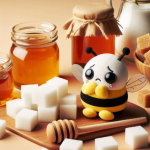When you ask individuals what they desire most in life, the overwhelming response tends to be happiness or elements that foster happiness. In today’s fast-paced society, it's alarmingly easy to become ensnared in the pursuit of momentary pleasure. The exhilarating rush of Dopamine that surges through our brains when we indulge in a slice of a delectable cake is undeniably satisfying. This fleeting experience of pleasure is a biological response, a rapid burst of joy instigated by our brain’s complex reward system. dopamine serves not just as a feel-good chemical but as a motivator, pushing us to seek out behaviors that yield instant gratification. However, this type of pleasure is ephemeral, often leaving us with a sense of longing for more as soon as the initial thrill dissipates.
Although the immediate enjoyment of indulging in a sweet treat can brighten our day, it is crucial to understand that these experiences are inherently transient. They provide a brief escape, a momentary reprieve from the stresses of daily life. While such pleasures can be delightful, they do not significantly enhance our overall well-being or contribute to lasting satisfaction. The fleeting nature of these indulgences often propels individuals into a cycle of perpetual seeking, where the quest for the next high never culminates in genuine fulfillment.
 For instance, enjoying a slice of cake or a few cookies after a grueling workday may provide temporary relief. The immediate sugar rush and the accompanying dopamine release can create a fleeting moment of joy. Nevertheless, once this initial high subsides, the underlying stressors remain intact, prompting you to reach for another slice of cake, a couple more cookies, or perhaps another sugary indulgence like ice cream or chocolate. This behavior exemplifies how we often use food as a coping mechanism, leading to a cycle of reliance on temporary pleasures to alleviate stress.
For instance, enjoying a slice of cake or a few cookies after a grueling workday may provide temporary relief. The immediate sugar rush and the accompanying dopamine release can create a fleeting moment of joy. Nevertheless, once this initial high subsides, the underlying stressors remain intact, prompting you to reach for another slice of cake, a couple more cookies, or perhaps another sugary indulgence like ice cream or chocolate. This behavior exemplifies how we often use food as a coping mechanism, leading to a cycle of reliance on temporary pleasures to alleviate stress.
As this pattern of behavior continues, individuals frequently find themselves depending more on sugary treats to manage their stress and emotional turmoil. Over time, this reliance can spiral into a cycle of overconsumption, where the pursuit of the next sugar rush becomes a desperate attempt to escape feelings of anxiety or unhappiness. Yet, despite the momentary pleasure derived from each indulgence, a sense of true satisfaction or contentment remains elusive, leaving you in a constant state of craving.
This relentless pursuit of short-lived pleasures can culminate in negative repercussions. On a physical level, it can manifest as weight gain, energy crashes, and potentially lead to chronic health issues like diabetes or heart disease. Psychologically, it often engenders feelings of guilt, shame, and increased stress as individuals become increasingly aware of their unhealthy habits yet feel trapped in the cycle of indulgence. The more one immerses themselves in fleeting pleasures, the deeper the sense of entrapment in a cycle of dissatisfaction, making it increasingly challenging to unearth lasting happiness or fulfillment.
Conversely, true happiness represents a deeper, more enduring state of being. It transcends mere momentary pleasure and is rooted in the pursuit of a lasting sense of contentment and purpose. Genuine happiness is derived from engaging in meaningful activities, nurturing relationships that enrich our lives, and contributing to something greater than ourselves. It is a state cultivated over time through experiences that foster a sense of achievement, connection, and inner peace.

Family is everything
The relationships and connections we cultivate are among the most profound sources of true happiness. Engaging with loved ones, sharing experiences, and building lasting memories together foster a sense of belonging and emotional support. These connections enhance our lives far beyond the fleeting pleasure derived from a sugary treat. By focusing on nurturing and maintaining these vital relationships, we lay the groundwork for a more sustainable and enduring happiness.
Therefore, while the momentary joy of indulging in a sweet treat is undeniably enjoyable, the lasting joy derived from meaningful connections and enriching experiences truly enhances our lives. By prioritizing these deeper sources of happiness, we can cultivate a more fulfilling and contented existence that transcends the fleeting highs of temporary pleasure.
Understanding the Neuroscience Behind Pleasure Response
When we engage in pleasurable activities like savoring a delightful dessert, our brain releases dopamine, a neurotransmitter that plays a pivotal role in the brain’s reward and pleasure systems. This neurotransmitter is essential in shaping how we experience pleasure and motivation. It is a critical component of the brain's reward circuitry, which includes vital structures such as the nucleus accumbens and the ventral tegmental area. These areas are crucial for processing rewards and reinforcing behaviors that are essential for survival.
When we taste something sweet, like cake, the combination of taste, aroma, and texture triggers a significant neural response. This sensory experience leads to a release of dopamine, generating feelings of pleasure and satisfaction. This biochemical reaction signals to the brain that we have encountered something enjoyable and beneficial, thus encouraging us to repeat the behavior. This mechanism is evolutionarily designed to reinforce behaviors that are critical for survival, like eating, by making such activities pleasurable and rewarding.

However, the pleasure derived from such activities is often fleeting. The initial spike in dopamine creates a temporary euphoric sensation, but this feeling quickly diminishes as dopamine levels return to baseline. The sweetness of the cake and the joy it brings soon wane, prompting us to seek out additional sources of pleasure to recreate that initial high. This cycle can lead us to repeatedly reach for another slice of cake or seek out other instant gratification methods.
Regrettably, the ephemeral nature of dopamine-driven pleasure can create a cycle of craving and overindulgence as we chase after the next brief high, hoping to recapture the initial pleasurable experience. This cycle can ultimately be detrimental to our overall well-being and health.
It is essential to acknowledge that while dopamine-driven pleasures are integral to our brain’s reward system, they are not structured to furnish lasting fulfillment. These pleasurable moments are transient and do not significantly enhance long-term happiness. Instead, they serve as quick fixes, offering a brief escape from life’s mundane or stressful realities.
Gaining insight into the neuroscience behind pleasure can enhance our understanding of why certain activities are so alluring and why they often leave us with a sense of unfulfilled desire. It also highlights the necessity of pursuing more sustainable sources of happiness that can yield a deeper sense of satisfaction and well-being over time.
Exploring the Core Elements of True Happiness
True happiness represents a more stable and enduring state of well-being, encompassing a broader and deeper spectrum of experiences compared to the fleeting pleasure induced by dopamine. It is characterized by a sustained sense of contentment and fulfillment, often referred to as eudaimonic well-being. This lasting happiness emerges from a variety of sources that contribute to a rich and meaningful life.
Identifying the Pillars of Lasting Happiness
The Journey of Personal Growth
One of the primary sources of enduring happiness is the continuous journey of personal development and growth. Engaging in challenges that foster intellectual, emotional, or spiritual growth significantly contributes to a lasting sense of achievement and satisfaction. Whether it’s acquiring a new skill, pursuing a passion, or setting and accomplishing personal goals, the process of growth and self-improvement nurtures a profound understanding of fulfillment and purpose.
The Importance of Fulfilling Relationships
Another vital aspect contributing to lasting happiness is the quality of our relationships. The feeling of emotional security, belonging, and connection stems from having strong, supportive relationships with our partners, friends, and extended family. These connections provide not only companionship but also love and encouragement essential for our overall well-being. Sharing our lives with others and experiencing mutual trust and respect creates a foundation for genuine happiness.

Altruism boosts happiness
The Significance of Meaningful Experiences
Participating in activities imbued with meaning and purpose is another key contributor to lasting happiness. This can encompass work that we find fulfilling, engaging in hobbies we are passionate about, or volunteering our time to positively impact others' lives. These meaningful experiences create a sense of purpose and contribute to the narrative of a life well-lived, enhancing our happiness and satisfaction.
Navigating the Complex Emotions of Happiness
The concept of happiness involves a complex interplay of emotions and psychological well-being. It encompasses positive emotions such as joy, contentment, and love, alongside the ability to cope with and recover from negative emotions like sadness, anger, and stress. Developing strong emotional resilience is critical for experiencing lasting joy and happiness, as it enables us to navigate life’s inevitable ups and downs with balance and perspective.
Unlike the quick burst of pleasure associated with dopamine, which is intense but brief, true happiness is derived from the cumulative effect of numerous positive experiences over time. It focuses less on the intensity of any single moment and more on the overall quality of our lives. Achieving happiness involves building meaningful connections and accumulating a series of accomplishments and experiences that contribute to a fulfilling and meaningful life.
In summary, while the temporary pleasure from a slice of cake is delightful, the enduring happiness that arises from personal growth, meaningful relationships, and impactful experiences is far more rewarding. By focusing on these deeper sources of happiness, we can cultivate a life that is not only filled with fleeting moments of joy but also rich, fulfilling, and deeply satisfying.
The Article: Happiness vs Pleasure: Savouring the Moments That Matter Appeared First On Jane Stevens Nutrition.
